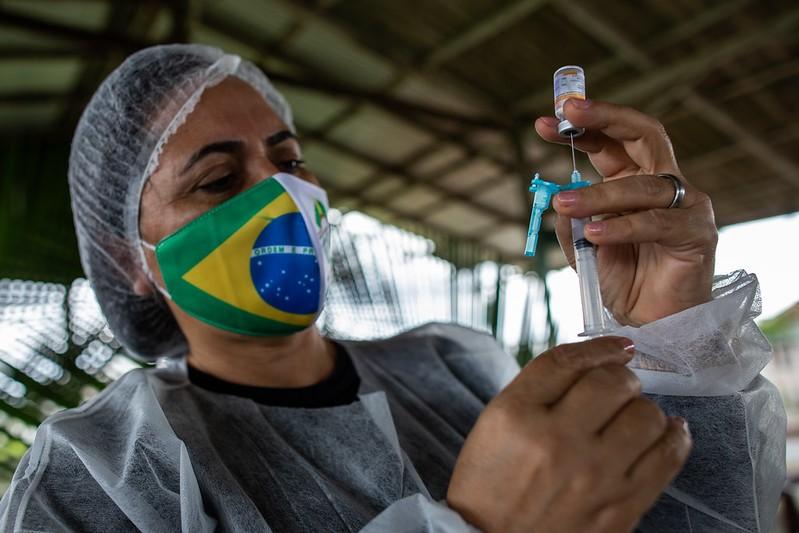Adjusted vaccine effectiveness (VE) of the influenza vaccine against hospitalization during the 2023 Southern Hemisphere flu season was 52%, with estimated protection of 55% against the predominant A(H1N1) strain, estimates a test-negative case-control study published late last week in Morbidity and Mortality Weekly Report.
A team led by researchers from the US Centers for Disease Control and Prevention (CDC) analyzed data on 2,780 patients hospitalized for severe acute respiratory infection (SARI) reported by hospitals in five South American countries from March to July 2023. A total of 15.3% of flu patients were vaccinated against flu, compared with 28.0% of control patients, who tested negative for both flu and COVID-19.
Participants, who had been prioritized for vaccination based on national immunization policy, included young children (45.4%), those with chronic conditions (14.0%), and older adults (40.6%). Of all patients, only 23.9% were vaccinated against flu.
May foreshadow US flu season
Midseason data were pooled from 486 sentinel hospitals, including 11 in Argentina, 455 in Brazil, 8 in Chile, 2 in Paraguay, and 10 in Uruguay. Because flu started circulating in the Southern Hemisphere earlier than usual and before flu vaccination campaigns, VE assessments began 2 weeks after each country's annual flu vaccination campaign.
The countries participate in the Pan American Health Organization (PAHO) Network for the Evaluation of Vaccine Effectiveness in Latin America and the Caribbean–Influenza research network.
The researchers noted that if the same flu virus strains that predominated in the Southern Hemisphere's March-to-September flu season also predominate during the Northern Hemisphere's October-to-May season, VE assessments may help inform flu-mitigation strategies in the United States. The Northern Hemisphere's flu vaccine formulation for the upcoming season targets strains that are genetically similar to those that circulated south of the equator.
The egg-based, three-strain, Southern Hemisphere vaccine targeted the A/Sydney/5/2021 (H1N1)pdm09, A/Darwin/9/2021 (H3N2), and B/Austria/1359417/2021 (B/Victoria lineage) virus, while the egg-based quadrivalent vaccine also targeted B/Phuket/3073/2013 (B/Yamagata lineage).
Vaccination especially urgent for those at risk
A total of 900 (32.4%) of SARI patients tested positive for flu (90.6% with influenza A and 9.4% with type B). Virus subtypes included H1N1 (99.3%) and H3N2 (0.07%); all influenza B strains were of the Victoria lineage.
Nearly half (48.4%) of flu cases occurred in older adults, 35.8% were diagnosed in those with chronic conditions, and 17.0% occurred in young children.
In anticipation of Northern Hemisphere influenza virus circulation, the World Health Organization and CDC recommend that health authorities encourage health care providers to administer annual influenza vaccination to all eligible persons.
VE against hospitalization was estimated at 51.9% (95% confidence interval [CI], 39.2% to 62.0%), including 55.2% (95% CI, 41.8% to 65.5%) against those related to the H1N1 strain. VE was 70.2% for young children and 37.6% among older adults.
When restricted to H1N1, VE against hospitalization was 55.2%. Estimated VE against influenza B hospitalization was not statistically significant, and numbers of vaccinated patients with H3N2 were too low to estimate VE for that strain.
Most viruses belonged to the same genetic clades targeted by 2023 Southern Hemisphere vaccines.
Last flu season in the United States, an estimated 27 million people contracted the flu, and 300,000 were hospitalized. The CDC recommends that Americans receive their flu vaccine by the end of October.
"In anticipation of Northern Hemisphere influenza virus circulation, the World Health Organization and CDC recommend that health authorities encourage health care providers to administer annual influenza vaccination to all eligible persons, particularly emphasizing the importance of vaccination for persons at increased risk for severe outcomes (eg, very young children, persons with preexisting health conditions [including pregnant women], and older adults)," the study authors wrote.




















